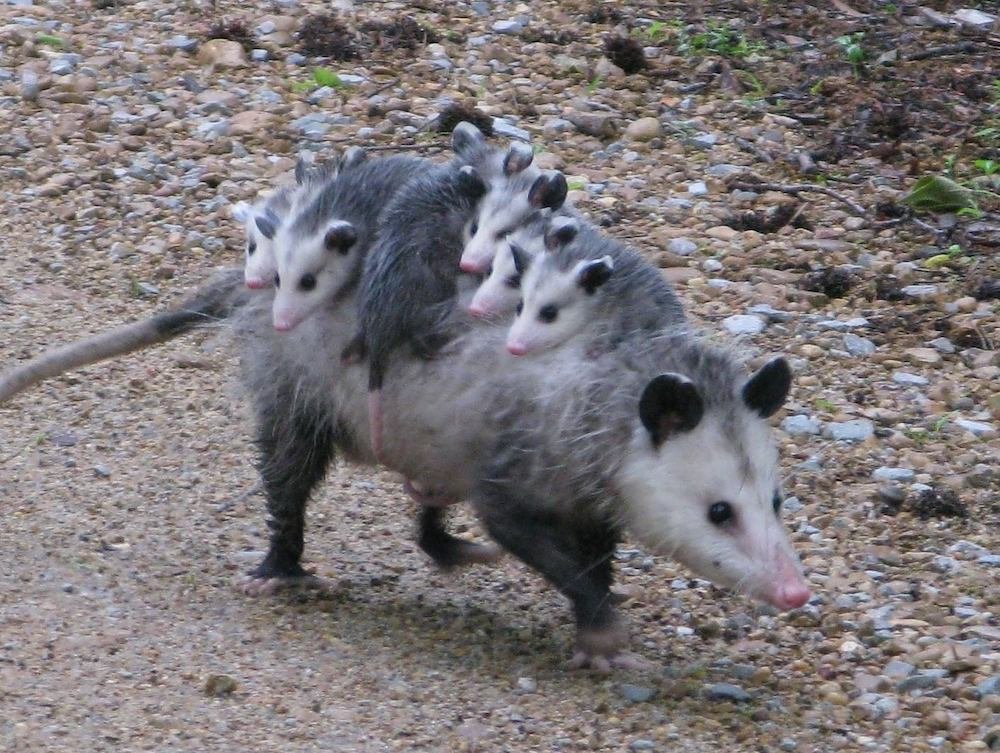Possums, also known as opossums in North America, are common nocturnal marsupials that are often spotted rummaging through trash or wandering around residential areas at night. Their sharp teeth and hissing sounds can make them seem intimidating — but are possums actually dangerous to humans or pets?
In this article, we’ll explore whether possums pose any real threats, their behavior in the wild, and how to handle encounters safely.
What Are Possums?
Possums are marsupials native to Australia, New Guinea, and nearby islands. However, in North America, the term “possum” often refers to the Virginia opossum (Didelphis virginiana), which is the only marsupial found naturally in the United States and Canada.
✅ Key Facts About Possums:
- Size: Adult possums can grow up to 2.5 feet long, including their tail.
- Weight: They weigh between 4 to 14 pounds.
- Diet: Possums are omnivores, feeding on fruits, insects, small animals, and carrion.
- Habitat: They are highly adaptable and thrive in urban, suburban, and rural environments.
- Lifespan: Possums typically live for 2 to 4 years in the wild.
Are Possums Dangerous to Humans?
1. Possums Are Not Aggressive
Despite their intimidating appearance, possums are generally non-aggressive and prefer to avoid confrontation.
- When threatened, they are more likely to “play dead” — a behavior called thanatosis — where they lie motionless, release a foul odor, and appear lifeless to deter predators.
- If cornered, possums may hiss, growl, or bare their teeth, but this is usually a bluff rather than an attack.
Risk Level: Low
Possums are unlikely to attack humans unless provoked or handled improperly.
2. Possums and Disease Transmission
While possums can carry certain diseases, they are less likely to transmit diseases to humans compared to other wild animals like raccoons or bats.
Potential diseases linked to possums include:
- Leptospirosis – A bacterial infection spread through urine-contaminated water.
- Salmonella – Contracted through contact with possum feces.
- Tuberculosis – Though rare, possums can carry tuberculosis.
However, possums have a lower body temperature (around 94°F) than most mammals, which makes them less suitable hosts for viruses like rabies. In fact, rabies in possums is extremely rare.
✅ Risk Level: Low
While the risk of disease transmission from possums exists, it is relatively uncommon.
3. Possums and Pet Safety
Possums are generally not aggressive toward pets, but conflicts can occur under certain circumstances:
- Dogs – Dogs may chase or attack possums, which can lead to defensive scratching or biting from the possum.
- Cats – Most possums will avoid confrontations with cats unless they feel cornered.
- Small pets – Possums are not known to prey on small pets, but they may raid outdoor pet food.
If a possum feels threatened, it may scratch or bite as a last resort. However, these interactions are rare and usually avoidable.
✅ Risk Level: Low
Supervising pets and securing outdoor food sources can prevent conflicts.
Are Possums Dangerous to Property?

While possums are not directly dangerous to humans or pets, they can become a nuisance to property owners.
Property Risks Include:
- Trash and Garden Damage: Possums are skilled scavengers and may dig through trash cans or garden beds in search of food.
- Roof and Attic Damage: Possums may nest in attics, crawl spaces, or under decks, causing structural damage or leaving behind droppings.
- Pet Food Theft: Possums are attracted to food left outdoors and may develop a habit of returning to the same area.
Risk Level: Moderate
Proper trash management and securing entry points to your home can prevent property damage.
What to Do If You Encounter a Possum
If you spot a possum near your home, follow these steps to handle the situation safely:
1. Don’t Approach or Touch It
Possums are wild animals and may feel threatened if approached directly.
2. Back Away Slowly
Most possums will retreat on their own once they sense they are not in danger.
3. Secure Pets and Food Sources
Bring pets indoors and remove any outdoor food sources that may attract possums.
4. Seal Entry Points
If a possum is regularly visiting your property, check for entry points around your attic, crawl space, or garage and seal them.
5. Contact Wildlife Control (if necessary)
If a possum is injured or has taken up residence in your home, contact a local wildlife control service for safe removal.
Myths and Facts About Possums
| Myth | Fact |
|---|---|
| Possums carry rabies. | Possums have a low body temperature, making rabies rare. |
| Possums are aggressive and will attack. | Possums prefer to avoid conflict and will “play dead” when threatened. |
| Possums spread fleas and ticks. | Possums actually eat ticks and help control tick populations. |
| Possums are rodents. | Possums are marsupials, not rodents. |
Benefits of Having Possums Around
Despite their reputation, possums provide some surprising ecological benefits:
Natural Pest Control – Possums eat insects, including ticks, cockroaches, and beetles.
Rodent Deterrent – Their presence can help keep rodent populations in check.
Clean-Up Crew – Possums help clean up the environment by consuming carrion and food waste.
When to Be Concerned
While possums are generally harmless, certain situations may require action:
- If a possum appears sick or injured.
- If you notice an infestation in your attic or crawl space.
- If a possum becomes overly aggressive or territorial.
In these cases, contact animal control for professional assistance.
Conclusion
So, are possums dangerous? The answer is no — in most cases, possums are not dangerous to humans or pets. They are shy, non-aggressive creatures that prefer to avoid conflict. While they can pose some minor health risks and property damage, possums also offer environmental benefits by controlling pests and cleaning up waste.
Understanding possum behavior and knowing how to handle encounters safely can help you coexist peacefully with these misunderstood animals.
VOO Stock: The ETF That’s Making Waves in the Investment World






